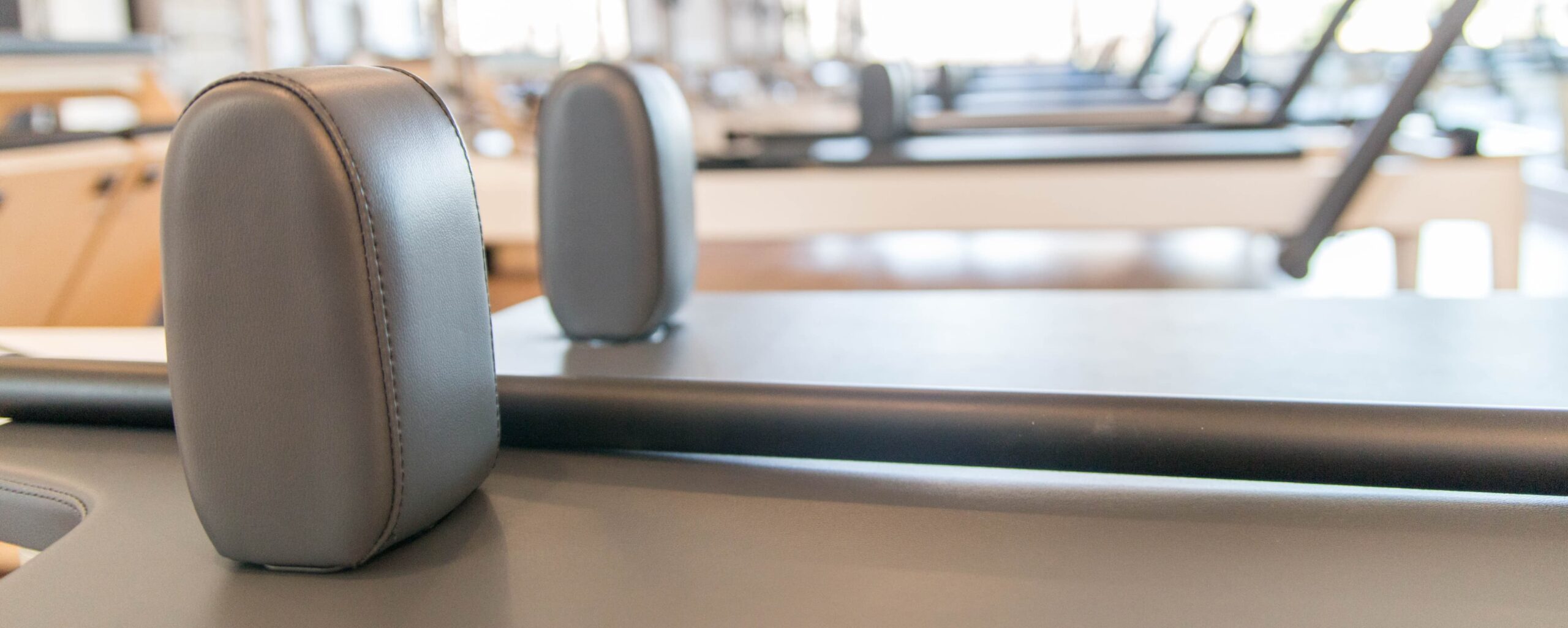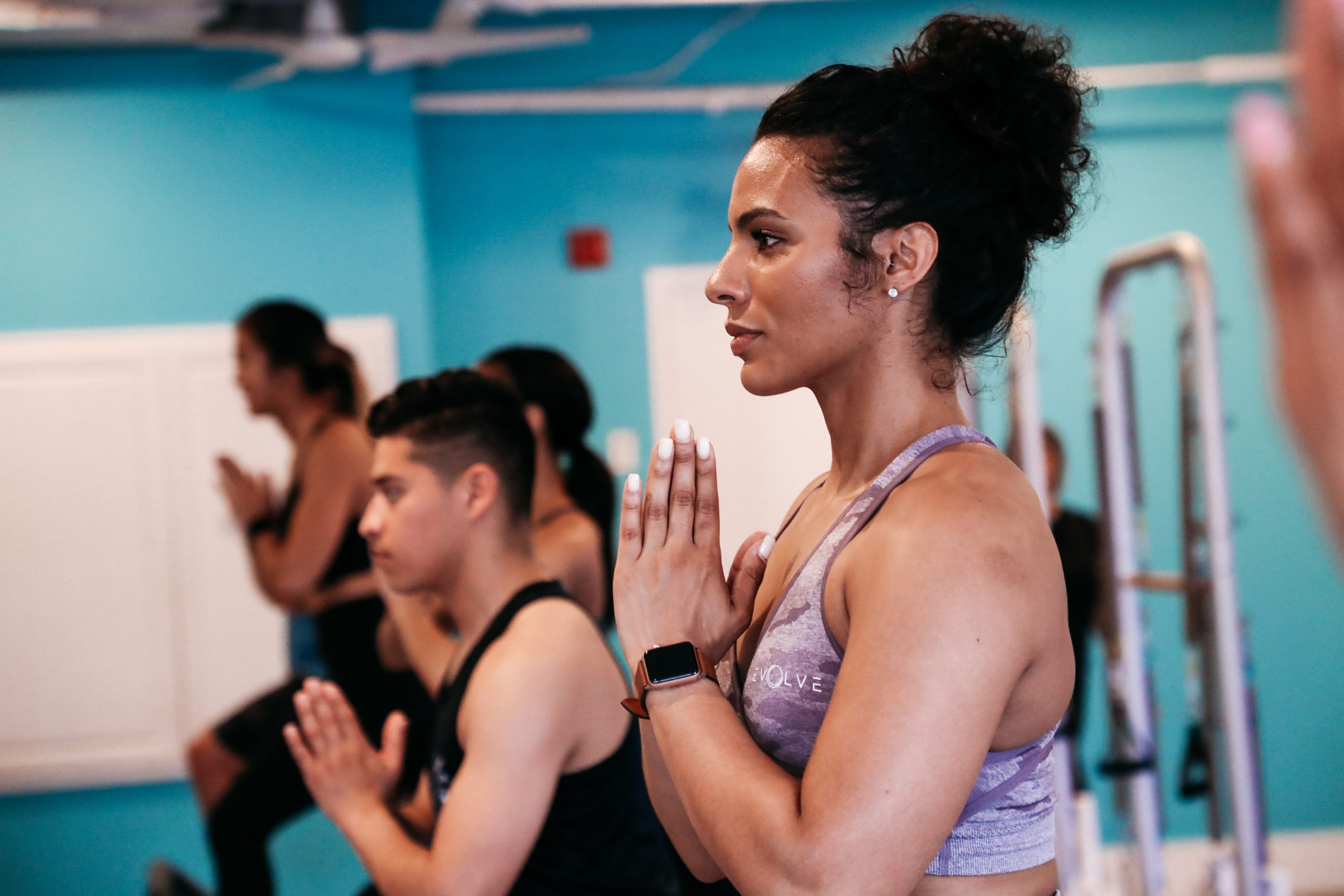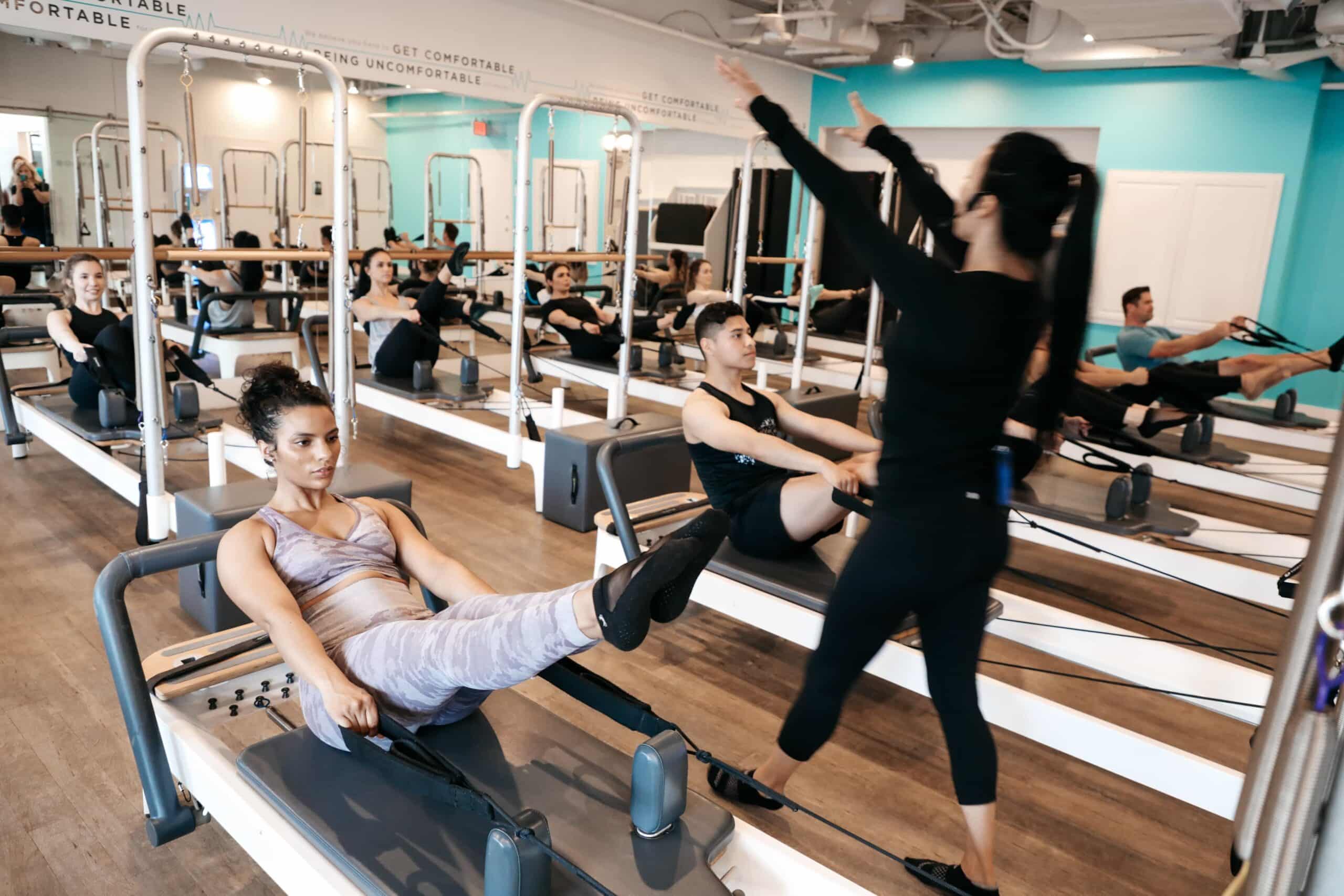How to Start a Fitness Business — and Should You Franchise?

A career in fitness looks a little different for everyone, depending on goals and lifestyle. While many love the experience of teaching and coaching, those with a more entrepreneurial spirit might consider branching out into fitness business ownership. Maybe you’re thinking of starting a personal training business or looking for other fitness business ideas. Should you start your own boutique studio? What about franchising?
It’s a lot to consider. Here’s how to open a fitness business in five major steps.
1. Decide what kind of fitness business to run.
Gone are the days of one neighborhood gym with basic workout amenities. These days, most studios specialize in a specific type of fitness. To pick one that works best for you, consider your own fitness training or knowledge, overhead costs, and the demographics of the community you’re targeting. You may research these different types of fitness studios (and more!) in your quest to starting a fitness business:
- Yoga studio
- Pilates studio
- HIIT gym
- Spin/cycling studio
- Dance studio
- Powerlifting gym
2. Pick a tentative location.
Ideally, this step will go hand-in-hand with step one, as audience demographics and market demand will influence the type of studio you’re opening.
Here are some ways to evaluate market demand to get a sense of whether your idea will work in your particular location:
- Take note of what studios and gyms are already in that neighborhood – if there’s a yoga studio down the block from your ideal location, consider opening a different type of fitness business.
- Research the rates your prospective competitors earn in your chosen market to find out if this matches your profitability goals.
- Learn about the median household income in the area so you can determine if the location can support the types of services you want to offer, or if you’ll need to adjust your plan.
- Check out other businesses in the area – not just your prospective competitors but also businesses you could partner with for promotions or events. How long have they been in business? Do they seem to be thriving or struggling?
After determining if local demand is sufficient, investigate zoning. If you’re planning to build or renovate a space, you’ll need to ensure that not just the building itself, but also the business you plan to operate, adheres to local zoning ordinances.
3. Create a fitness business plan.
You can’t get your fitness business off the ground until you have a business plan in order. If you’re investing in an existing franchise, this step is typically taken care of for you. If you’re starting a business alone, however, the fitness studio business plan is key to securing financing and staying organized.
Here are some areas you’ll want to research and document:
- Know who your target market is, and understand their fitness and buying practices.
- Gain an understanding of your local consumers’ economic habits.
- Draft up your financial plans and projections. Consider all likely costs, including legal, staffing, equipment, insurance, and property costs or rental fees. Know what you can afford and how you’ll make money, as well as the type or amount of financing you’ll need to secure.
- Understand your competition, and think about how you might turn competitors into allies. For example, a cycling studio owner and Pilates studio owner might work together by providing customers with a voucher for a free class at the other studio – each studio provides different services, so they aren’t competing as directly as two yoga studio owners might.
- Come up with a marketing and sales plan. How are you going to catch your target market’s attention? What local channels can you take advantage of? Marketing tactics could range from local newspaper features to social media advertising.
4. Dive into requirements to license a fitness business.
At this point, you’ve worked out the financial details and picked your location. Now you need the proper permits, licenses, and registrations to start your fitness business. Requirements vary by state, county, and town. Start by checking your state’s government website to see requirements. After that, research insurance required to protect your equipment, as well as liability or other insurance to protect your business and assets.
There are several documents you may need to operate a fitness business:
- Certificate of Occupancy: This is obtained from your city or county building department, verifying that you have permission to occupy the space you’ve designated for your studio.
- Employer Identification Number (EIN): This is obtained from the IRS and essential if you plan to hire employees.
- Any necessary zoning permits: These are available at your city or county building department.
- Permits or licenses: Obtain whatever your municipality requires for gyms or health clubs.
And if you’re looking for a partner to simplify the process and have your back through it all …
5. Consider franchising.
Figuring out how to start a fitness business is difficult, but choosing to start a fitness franchise can make the journey much easier. Franchising comes with all the benefits of independent ownership, plus incredible support from the franchisor, including an established business plan and brand awareness. Some franchisors offer assistance with marketing, location selection, training, and construction. Through franchising, you gain a community to lean on that is just as passionate and dedicated to the brand as you are. Learn more about franchising vs. starting a business alone.
Fitness Business and Franchise FAQs
Are gym franchises profitable?
A gym franchise can definitely be profitable. Profitability varies based on your location, the type of gym franchise, brand recognition, and how smoothly the franchisee and franchisor work together. The average profit margin for a gym is 10%, but boutique fitness studios can reach as high as a 30% profit margin.
How do I decide which type of fitness business to start?
This decision will be led by your own expertise and passions. If you have training in a particular type of fitness, or you know your community is lacking a fitness service that you can provide, that’s a good place to start. That’s not to say that you have to be an expert in fitness! While it helps to be knowledgeable, having an interest and wanting to fill a need can lead you in the right direction.
What degree do I need to start a fitness business?
Even though many fitness business owners or managers do have a bachelor’s degree in an area such as business or health, you don’t need a specific degree to purchase or start a fitness business.
How can I come up with a fitness business name?
Simplicity and distinctiveness are important characteristics of an effective business name. Brainstorm business names by making a list of words that embody your new business’s values and the goals of your target audience. Narrow down the list from there. Don’t forget to check for domain availability before deciding on a final name.
Get Started with One of the Top Fitness Franchises
If Pilates-based fitness is your happy place, consider buying a BODYBAR franchise! We’re a top fitness franchise offering a wealth of benefits to our owners. Learn more about BODYBAR Pilates’ franchise opportunities and get in touch with us today to get started.



